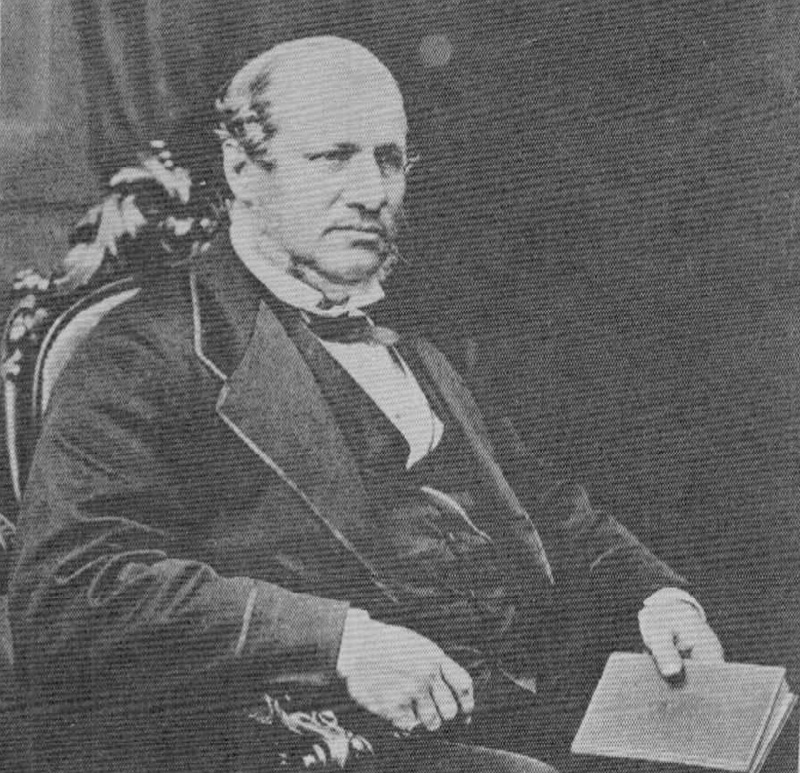
HISTORICAL EVENTS THAT TOOK PLACE ON THIS DAY IN CANADA
2 November

Sir Alexander Tilloch Galt (1817-1893)
Galt Joins Sir John A.
Sir John A. Macdonald changed his mind about important matters of policy, and he was also good at persuading other people to change their minds. In 1864, Sir John voted against Confederation, and then became its leading architect. In 1865, he said that the Prairies were "of no present value to Canada" although he agreed that the Northwest should be kept from the United States. Four years later, Macdonald acquired the territory for Canada.
Among the important people Macdonald persuaded to change their minds were two leading Liberals, A. T. Galt and Joseph Howe, both of whom joined his government. Howe was probably sorry later because he was only given a minor job in the Macdonald cabinet, and the move angered his former friends and supporters in Nova Scotia—some would even cross the street when they saw him coming.
The winning over of Galt was amusing, but it also helped to pave the way for Confederation. The Liberals were known as the Rouge party in Quebec, and Galt was one of its most powerful members. He was, above all, a businessman, and made a great deal of money in the railway building boom. George Brown, leader of the Clear Grits, passed some critical comments on politicians who made fortunes from the railways, even if they were his allies. Galt was obviously annoyed, and Macdonald quickly took advantage of the situation. On November 2, 1857, he wrote to Galt: "My dear Galt: You call yourself a Rouge. There may have been at one time a reddish tinge about you but I observe it becoming by degrees fainter. In fact you are like Byron's Dying Dolphin, exhibiting a series of colours—the last still loveliest—and that last is true blue, being the colour I affect. Seriously you would make a decent Conservative . . . so pray do become true blue at once: it is a good standing colour and bears washing."
Galt joined the Macdonald government immediately after the "double-shuffle" in 1858 (see August 6) on condition that Confederation of the five eastern provinces and acquisition of the Northwest be included in the party platform. This was the first real sign that the railway and business interests of Lower Canada were likely to throw their weight in favour of federal union.
OTHER NOTABLE EVENTS ON THIS DAY IN CANADIAN HISTORY
2 November
-1796 Six Nations Indians authorized Chief Brant to sell their land.
-1809 King George III made a gift of a communion plate to the Metropolitan Church Cathedral at Quebec.
-1833 W. L. Mackenzie was expelled from the Upper Canada legislature for the third time.
-1869 Louis Riel entered Fort Garry to take charge.
-1885 The first passenger train for Winnipeg left Montreal.
-1911 The citizens of Montreal contributed $1.5 million to McGill University.
-1947 Food rationing was ended in Canada.
-1960 Canada's first national theatre school was opened in Montreal.